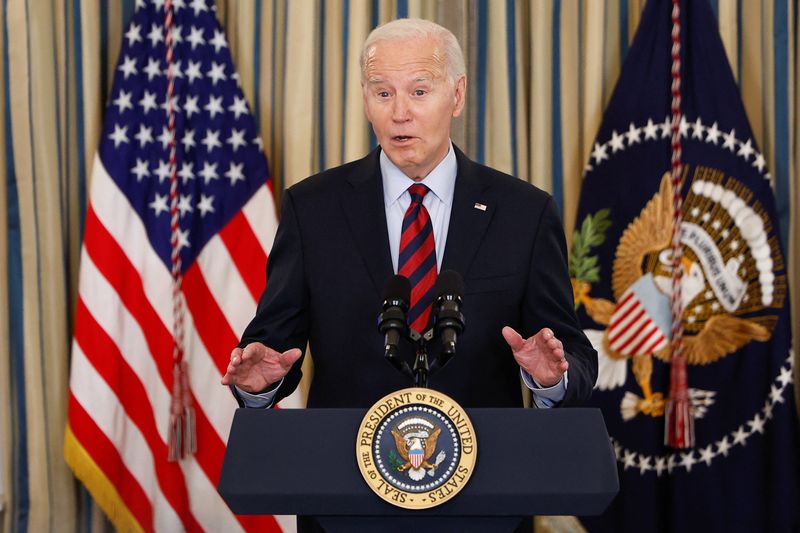By Daniel Wiessner
(Reuters) - Major U.S. business groups on Tuesday filed the latest lawsuit challenging a Biden administration rule that would make it more difficult for companies to treat some workers as independent contractors rather than employees.
The groups including the U.S. Chamber of Commerce, the country's largest business lobby, said in a complaint filed in federal court in Beaumont, Texas, that the U.S. Department of Labor rule violated federal wage law by adopting too broad a definition of who counts as a company's employee.
Employees are entitled to the minimum wage, overtime pay and other legal protections not afforded to contractors, and studies suggest that they can cost companies up to 30% more than contract workers.
The rule, which takes effect March 11, is expected to have a broad impact on an array of industries including app-based services that rely heavily on "gig" workers to contain costs. At least four other challenges to the rule are pending, including lawsuits by freelance writers, trade groups and a trucking company that treats driver as independent contractors.
The new lawsuit also claims that the Labor Department violated a federal law governing rulemaking by agencies by failing to justify its reversal of a Trump administration rule favored by trade groups.
The business groups had sued the department in 2021 when it first attempted to repeal the Trump-era rule. A judge blocked the repeal, saying the agency had not adequately explained its decision. Tuesday's filing came as an amended complaint in that case.
The Labor Department did not immediately respond to a request for comment.
The Labor Department has said that the rule is designed to clarify the standard for determining worker classification and crack down on industries where misclassification is common, such as construction, healthcare, retail sales and security and janitorial services.

Tuesday's filing comes as Republicans in Congress are separately working to repeal the rule. Senator Bill Cassidy, a Republican from Louisiana, has said he plans to introduce a resolution under the Congressional Review Act to nix the rule.
Lawmakers would need a two-thirds majority to overcome a likely veto by Democratic President Joe Biden.